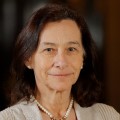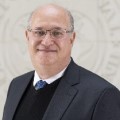Friday, Apr 22, 2022 | 08:00 AM - 08:30 AM
Location: IMF Connect
 |
Rosanna Costa Governor of the Central Bank of Chile |
Rosanna COSTA is the Governor of the Central Bank of Chile since February 2022, and Board Member since January 2017. She is Economist (Ingeniera Comercial) from the Pontifical Catholic University of Chile.
At the time of being nominated Board Member, she had been Deputy Director of the Instituto Libertad y Desarrollo (LyD) since June 2014 and was a member of the Council of the National Productivity Commission and the Technical Education Advisory Commission. Between 2010 and 2013 she was Director of Budget of the Ministry of Finance and, previously, between 1993 and 2010, she was Director of the Economic Program of LyD, where she investigated issues related to fiscal and labor policy, modernization of the State and capital markets.
Between 1984 and 1992, she had worked as an Economist at the Central Bank of Chile, in the areas of National Accounts and monetary policy research area. She was a member of the Presidential Commissions for the Study of the Pension Reform in 2006, Work and Equity in 2008, and more recently of the Advisory Council against Conflicts of Interest, Influence Trafficking and Corruption.
She has worked as Director of the System of Public Companies, Counselor of Senior Public Management, Director of Comunidad Mujer, member of the Circle of Human Resources of ICARE and of the Board of Directors of the Master program in Management and Public Policies of the Adolfo Ibáñez University. She has taught Economics at the Pontifical Catholic University of Chile and more recently in graduate courses at the University of Chile.
 |
Ilan Goldfajn Director Western Hemisphere Department, IMF
|
Ilan Goldfajn is the Director of the IMF’s Western Hemisphere Department. He was Governor of the Banco Central do Brasil (BCB) from May 2016 until February 2019. During his tenure at the BCB, he oversaw implementation of significant regulatory changes that opened the door to new players in the financial services industry, spurred innovation, and digitalization, and fostered the growth of fintech companies that has had a positive impact on Brazil’s financial sector. In 2017, he was elected Central Banker of the Year by The Banker magazine; and the year after, he was named Best Central Banker by Global Finance magazine.
Mr. Goldfajn’s experience in the private sector include positions as Chief Economist and Partner of Itaú Unibanco, founding Partner of Ciano Investimentos, and Partner and Economist at Gávea Investimentos—three leading financial institutions in Brazil. More recently he was the Chairman of Credit Suisse Brazil’s Advisory Board. He has also worked as a consultant to a number of global financial organizations, including the World Bank, the United Nations, and the IMF.
He has taught economics at various universities in Brazil and the United States and has published numerous articles and books. Mr. Goldfajn holds a PhD in Economics from the Massachusetts Institute of Technology (MIT), a master’s degree in Economics from the Pontifíca Universidade Católica and a bachelor’s degree in Economics from the Universidade Federal, both in Rio de Janeiro, Brazil.
Key Points:
Quotes:
“We are in a process where certain globalization trends are being revised. We could talk about a certain ’deglobalization’—many firms are rethinking their supply chains—this is a productivity shock.” Rosanna Costa
“[The reason why countries in Latin America reacted more quickly than Advanced Economies in their monetary policy response] has to do with our history, our institutional strengths, and our experience with inflation. A country more subject to shocks must resolve its imbalances quickly to be able to confront future shocks.” Rosanna Costa
“Sometimes we are exposed to one shock on top of another, which is the case today. We have the Covid dynamic and the Ukraine shock, and this is posing a greater challenge to central banks.” Ilan Goldfajn
“You spoke of buffers and the Chilean economy’s capacity to react, which are built ex ante and over time. And that is an important message for the countries of the region—to arrive at a shock without being vulnerable.” Ilan Goldfajn
Contributor: Maria Guerra Bradford